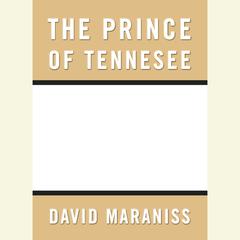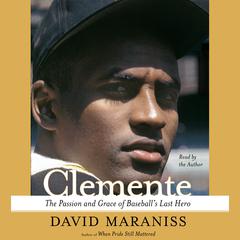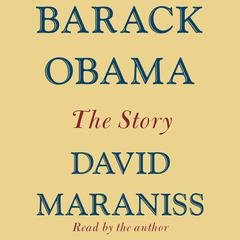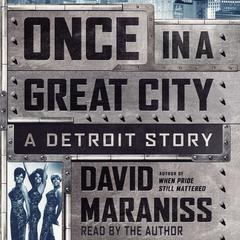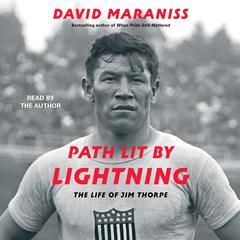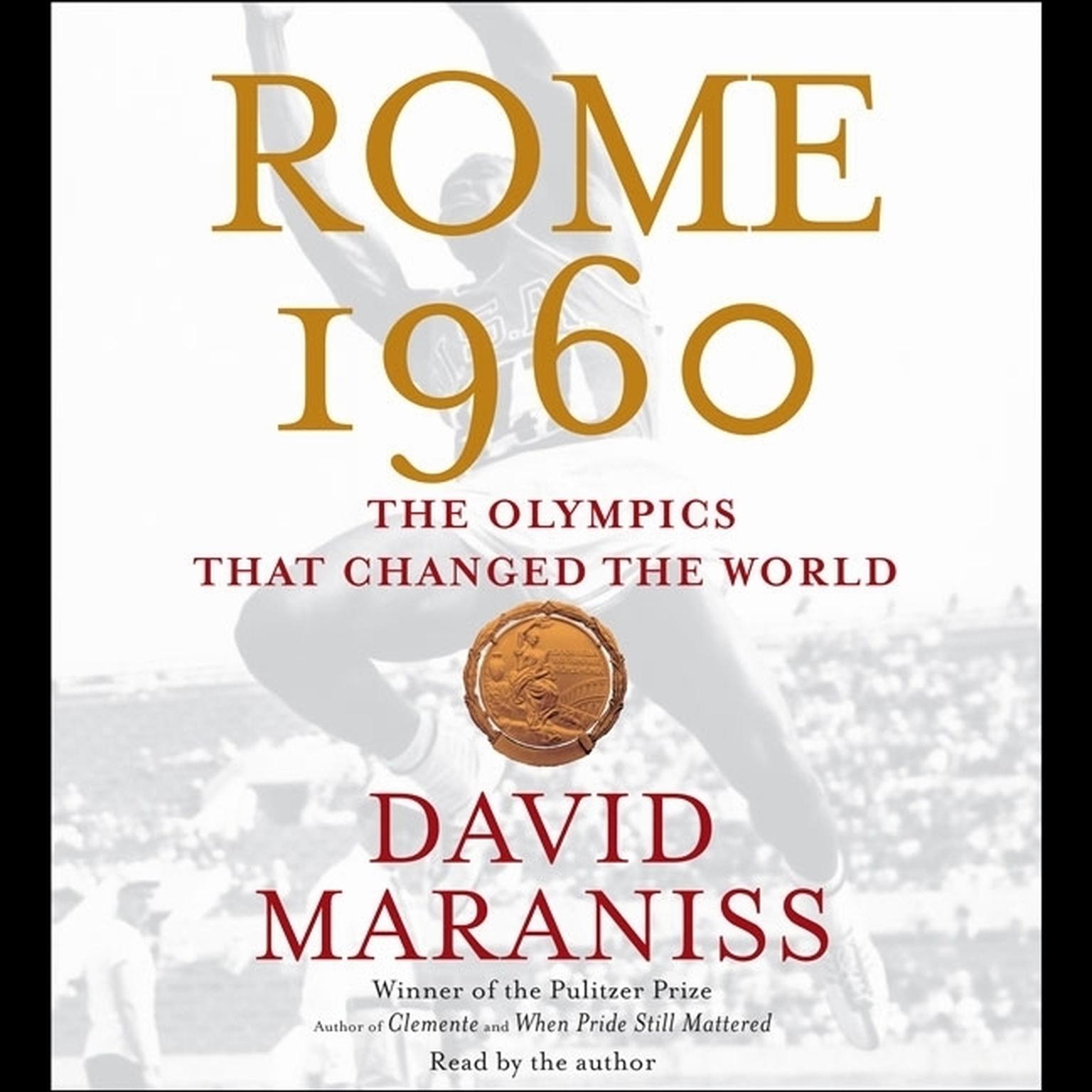 Play Audiobook Sample
Play Audiobook Sample
Rome 1960 (Abridged): The Olympics that Changed the World Audiobook
 Play Audiobook Sample
Play Audiobook Sample
Quick Stats About this Audiobook
Total Audiobook Chapters:
Longest Chapter Length:
Shortest Chapter Length:
Average Chapter Length:
Audiobooks by this Author:
Publisher Description
Bestselling author David Maraniss weaves sports, politics, and history into a groundbreaking tour de force
The athletes competing in the 1960 Rome Olympics included some of the most honored in Olympic history: decathlete Rafer Johnson, sprinter Wilma Rudolph, Ethiopian marathoner Abebe Bikila, and Louisville boxer Cassius Clay, who at eighteen seized the world stage for the first time, four years before he became Muhammad Ali.
Along with these unforgettable characters and dramatic contests, there was a deeper meaning to those late-summer days at the dawn of the sixties. Change was apparent everywhere. The world as we know it was coming into view. Rome saw the first doping scandal, the first commercially televised Summer Games, the first athlete paid for wearing a certain brand of shoes. In the heat of the cold war, every move was judged for its propaganda value. East and west Germans competed as a unified team less than a year before the Berlin Wall. There was dispute over the two Chinas. An independence movement was sweeping sub-Saharan Africa, with fourteen nations in the process of being born. There was increasing pressure to provide equal rights for blacks and women as they emerged from generations of discrimination.
Using the meticulous research and sweeping narrative style that have become his trademark, Maraniss reveals the rich palate of character, competition, and meaning that gave Rome 1960 its singular essence of theater, suspense, victory and defeat.
Download and start listening now!
"The author sees the 1960 Olympic Games in Rome as the games that provided the transition to the modern games with their multitude of problems--doping, political tensions reflected in the scoring, corporate sponsorship, and the debate about what being an amateur athlete really means. At its best, the book profiles the leading athletes from around the world and vividly recreates the tensions of a variety of events. At the other end of the spectrum, the book drags somewhat when discussing the politics of the International Olympic Committee. I highly recommend this book especially when it places the Olympic experience into the political context of the period and reminds the reader that athletes do not compete in a vacuum. A fascinating read."
— Judy (4 out of 5 stars)
Quotes
-
“Maraniss has written a colorful, fast-moving, and often dramatic book…Maraniss does a splendid job of resurrecting these heroes from almost ahalf-century ago, and of reminding us why we like the Olympics.”
— Washington Post -
“Maraniss brings to this sprawling topic a newspaperman’s eye for colorful detail and a biographer’s passion for character.”
— Los Angeles Times -
“History buffs and sports fans alike will appreciate Maraniss’ quiet reporting, as he deftly removes himself from a storyline that is still relevant today.”
— Amazon.com, editorial review -
“Pulitzer Prize-winning author David Maraniss re-creates that long-ago drama in his new book with such vivid and astonishing detail you almost feel as though you lived it.”
— Gazette (Montreal) -
“Colorful retrospective…Maraniss provides an intelligent context of his evocative reportage.”
— Publishers Weekly
Awards
-
Recipient of the Choice Award for Outstanding Academic Title
-
A New York Times bestseller
-
An Amazon Best Book of the Month
Rome 1960 Listener Reviews
-
" IU thought this would be part of my Italy reading blitz bit it was almost all about the summer Olympics and very little of the venue. The 1960 Olympics featured Rafer Johnson who won the decathalon and who 8 years later would cradle a dying RFK in his arms after wrestling the gun from his assasin. Cassius Clay. Wilma Rudolf and her band of woman sprinters from Tennessee State. It was cold war by proxy and the Russians beat the Americans. It was the start of the steroid era with a Dane cyclist collapsing and dying with drugs in his system. And the strirring of the new states exemplified by Abebe Bikila who ran and won the marathoin running barefoot for Ethiopia passed an obelisk that had been pilferred by Mussolini. It was also the beginning of the end of the arrognace and elitism of "amateur" status with the obvious advantages of the sports mills from the eastern bloc. A godd and quick read. "
— Bap, 2/19/2014 -
" This book has some incredibly interesting stories, facts and concepts. However, I felt like I had to slog through a lot weeds to get to the gems. I would recommend it to anyone with an interested in Olympics, politics in the early '60 and the Cold War culture. "
— Heather, 2/19/2014 -
" The Pulitzer Prize winning author brings a special time & place - the XVII Olympiad - to life as he recounts the stories of many of the Olympians, some names immediately recognized and honored down through the years, others remembered by sports enthusiasts only. David Maraniss' writing weaves together the individuals, their backgrounds and athletic events played out against the world stage - the politics and the cultural mores of the day. As is mentioned, change was apparent everywhere. The world as we know it was coming into view. I thoroughly enjoyed looking back at this exact moment in history - Maraniss brought the 1960 Olympics to life and honored the athletes involved in doing so. It was interesting to glimpse behind the scenes. "
— Linda, 2/8/2014 -
" I never managed to finish this one. It was fairly interesting - dealing with the political landscape of 1960 and how that affected the Olympics. However, it could not hold my interest, so I gave up and took it back to the library. There seem to be some interesting characters, but I just can't deal with a blow by blow account of every single race and competition in the Olympics. "
— Clarissa, 2/5/2014 -
" Good book and thoroughly researched as is the norm for Maraniss. I enjoyed reading of the history being played out at the time of the 1960 Olympics, but really wasn't into reading about those Olympic games themself. "
— Dan, 1/20/2014 -
" Very interesting with a lot of insider stuff. "
— Sharpie, 1/19/2014 -
" Especially during this year's Olympics, this explores a lot of the little known aspects of that year's version when so many social and political shifts were beginning to impact the athletes and the countries that sent them. "
— Vince, 12/18/2013 -
" Interesting and fast read about the athletes at the Rome Olympics of 1960, including Wilma Rudolph. "
— Marian, 12/1/2013 -
" Enjoyed Clemente and Lombardi better. Not a bad timepiece of the new decade and the changing world. "
— Luigib, 11/25/2013 -
" This was a good read about a very interesting time. However, the story telling became a bit flat and repetitive. First couple and last chapters were the best. "
— Michael, 11/17/2013 -
" Sports and history - 2 of my favorite things. This book was well-researched, informative, insightful, funny, heartbreaking and inspiring. "
— Caroline, 6/12/2013 -
" A lot of information but a really good read. "
— Meredith, 5/11/2013 -
" Some very interesting anecdotes about the 1960 games and I learned a lot about the athletes but a bit too sprawling in scope. "
— Al, 3/31/2013 -
" Interesting in light of what goes on today "
— Alec, 10/30/2012 -
" Factual, insightful take on what happened. A sound, balanced book which captivates & holds the reader. Doesn't hurt to have read most while current Olympics were televised. "
— Metzi, 8/23/2012 -
" A really great in-depth look at the 1960 Olympics is Rome.Written from an American perspective, but he does not only focus on them. "
— Louis, 6/17/2012 -
" Nice read as a run up to the Olympics! "
— Vicky, 4/18/2012 -
" If you're still coming down from Olympics fever, this might be the book for you. It combines sports, history, politics, and drama. "
— Jenny, 3/27/2012 -
" Great book about race and the media in the 1960 Olympics. Not just a sports book. "
— Jeanette, 9/12/2011 -
" Very enjoyable, detailed and interesting history of how the the cold war, racism and drugs influenced the changing world of sports. "
— Marianne, 6/11/2011 -
" Very enjoyable, detailed and interesting history of how the the cold war, racism and drugs influenced the changing world of sports. "
— Marianne, 6/1/2011 -
" Very interesting with a lot of insider stuff. "
— Sharpie, 4/6/2011 -
" i'm sorry this was abrideged, i'd like to have heard more. good book and listen "
— Jim, 3/2/2011 -
" Enjoyed Clemente and Lombardi better. Not a bad timepiece of the new decade and the changing world. "
— Luigib, 12/24/2010 -
" Excellent book. The history is fascinating. The writing is stimulating. Maraniss is a fabulous writer and I just wanted it to keep going and going. "
— Ruth, 11/2/2010 -
" Great story about an interesting time in both the world of sport and in our society. "
— Sal, 7/16/2010 -
" The stories were interesting. It read more like fiction than non-fiction. However, it moved a little too slow for me. "
— Emily, 6/15/2010
About David Maraniss
David Maraniss is an associate editor at the Washington Post and a distinguished visiting professor at Vanderbilt University. He has won two Pulitzer Prizes for journalism and was a finalist three other times. Among his bestselling books are biographies of Bill Clinton, Barack Obama, Roberto Clemente, Jim Thorpe, and Vince Lombardi. He has also written a trilogy about the 1960s: Rome 1960; Once in a Great City, winner of the RFK Book Award; and They Marched into Sunlight, winner of the J. Anthony Lukas Book Prize and a finalist for the Pulitzer Prize in History.





